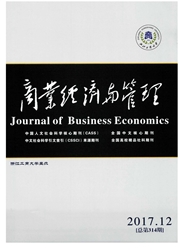

 中文摘要:
中文摘要:
摘要:针对有关会计稳健性是否应作为一项会计信息质量特征的理论争议,文章从决策有用性的财务会计基本目标出发,以2008年金融危机为冲击事件实证检验了在危机环境中会计稳健性对债务资源配置的影响。结果表明与危机前相比,在金融危机期间会计稳健性不仅能引导债务资源的配置方向,而且能显著提高债务资源的配置效率。同时在考虑到我国特殊产权制度因素后进一步研究发现,相对于国有企业,稳健性对债务资源配置的影响在民营企业中表现得更加显著。文章研究从债务资源配置方向和配置效率两方面丰富了会计稳健性的债务契约理论,支持了会计稳健性作为一项会计信息质量特征的必要性,也对银行等金融机构的债务资源配置决策具有重要指导意义。
 英文摘要:
英文摘要:
Whether accounting conservatism should be retained as a characteristic of accounting information is a long disputed theoretical topic. To shed some lights on it, this paper conducts empirical studies on how accounting conservatism affects the allocation of debt resources when impacted by a substantial negative crisis event, taking the 2008 global financial crisis as an example. The results show that accounting conservatism can not only guide the direction of, but also optimize the efficiency of the allocation of debt resources significantly during the financial crisis period, compared with the pre-crisis period. Moreover, taking the special property institution of China into considerations, further studies demonstrate that the effects of accounting conservatism on private enterprises are more pronounced than on state-owned companies. This study enriches the debt covenants theory on accounting conservatism both from the perspective of allocation direction and allocation efficiency of debt resources, which strongly support the necessity of viewing the accounting conservatism as a characteristic of accounting information. It also provides useful guidance to decision-making of debt resource allocation for banks and other financial institutions.
 同期刊论文项目
同期刊论文项目
 同项目期刊论文
同项目期刊论文
 期刊信息
期刊信息
